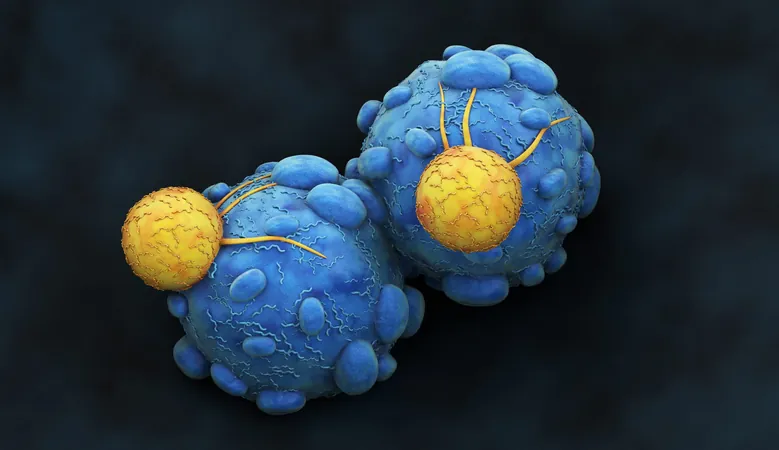
Breakthrough in Targeted Cancer Therapy: T Cells Customized for Brain Tumors and CNS Conditions!
2024-12-06
Author: Nur
In a groundbreaking advancement in cancer treatment, scientists at the University of California, San Francisco (UCSF) have engineered T cells with an unprecedented degree of targeting specificity. These innovative cancer-fighting cells are designed to zero in on the brain, effectively confronting tumors while minimizing damage to healthy tissues.
The programmed T cells possess a dual-layer specificity: they are equipped with a receptor that identifies a unique protein known as brevican, exclusively found in central nervous system (CNS) tissues. Upon activation by this protein, the T cells release genetically engineered payloads that specifically target various CNS disorders.
In preclinical studies using mice, these tailored T cells have not only shown effectiveness against aggressive brain tumors like glioblastoma but have also alleviated symptoms associated with multiple sclerosis. The remarkable results were recently published in the prestigious journal Science. Lead researchers, including Dr. Scott S. Zamvil, Dr. Hideho Okada, and Dr. Wendell A. Lim, are now preparing for clinical trials to evaluate the safety and efficacy of this approach in human patients suffering from glioblastoma.
The researchers' innovative strategy involved programming T cells to recognize extracellular CNS-specific antigens, which include components of the CNS's delicate matrix and proteins expressed on neurons. The T cells are designed to activate only when they detect brevican and additional cancer-specific markers, ensuring that they target cancerous cells in the brain without affecting similar proteins elsewhere in the body.
By employing this engineered “molecular GPS”, the T cells navigate through the bloodstream to reach brain tumors effectively, leaving dormant immune cells elsewhere to avoid unnecessary immune responses. This precision has been instrumental in clearing primary and secondary brain tumors in mouse models, which is a notable achievement considering the traditional challenges faced in treating brain cancers with surgery and chemotherapy.
Moreover, this method shows potential beyond glioblastoma; it successfully addressed brain metastases from breast cancer and even demonstrated the capability to deliver anti-inflammatory treatments to mitigate multiple sclerosis symptoms. As Dr. Okada emphasizes, this pioneering technique could transform treatment for millions affected by serious CNS conditions, including cancer and neurodegenerative diseases.
The scientists are optimistic about the future of this promising therapy, labelling it a possible game-changer for patients who currently face limited options against the deadly glioblastoma and other CNS disorders. With further testing and refinement, targeted therapies like these may soon provide new hope for individuals battling some of the most challenging health conditions in modern medicine.
Stay tuned for further updates on this revolutionary approach that could redefine cancer treatment as we know it!

 Brasil (PT)
Brasil (PT)
 Canada (EN)
Canada (EN)
 Chile (ES)
Chile (ES)
 España (ES)
España (ES)
 France (FR)
France (FR)
 Hong Kong (EN)
Hong Kong (EN)
 Italia (IT)
Italia (IT)
 日本 (JA)
日本 (JA)
 Magyarország (HU)
Magyarország (HU)
 Norge (NO)
Norge (NO)
 Polska (PL)
Polska (PL)
 Schweiz (DE)
Schweiz (DE)
 Singapore (EN)
Singapore (EN)
 Sverige (SV)
Sverige (SV)
 Suomi (FI)
Suomi (FI)
 Türkiye (TR)
Türkiye (TR)